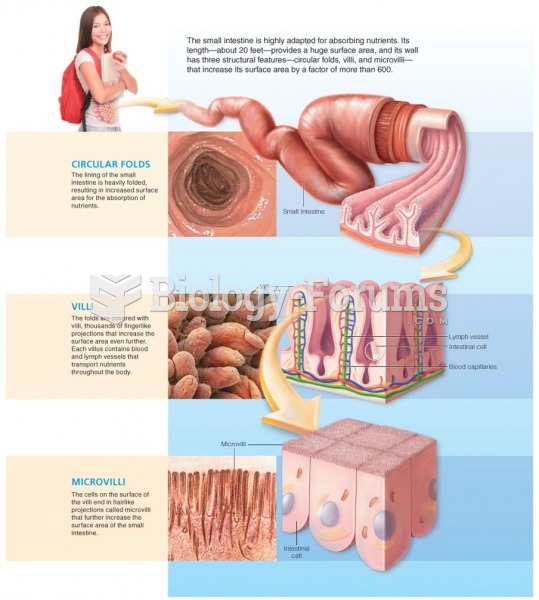|
|
|
Earwax has antimicrobial properties that reduce the viability of bacteria and fungus in the human ear.
Multiple sclerosis is a condition wherein the body's nervous system is weakened by an autoimmune reaction that attacks the myelin sheaths of neurons.
For pediatric patients, intravenous fluids are the most commonly cited products involved in medication errors that are reported to the USP.
Certain chemicals, after ingestion, can be converted by the body into cyanide. Most of these chemicals have been removed from the market, but some old nail polish remover, solvents, and plastics manufacturing solutions can contain these substances.
Cancer has been around as long as humankind, but only in the second half of the twentieth century did the number of cancer cases explode.







